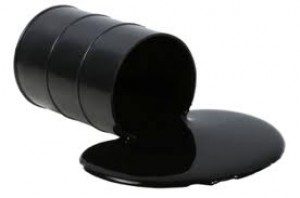Mr Terkper said the period’s total earnings were realised from the sale of about 4.78 million barrels of oil that were lifted by the Ghana Group, comprising the Government of Ghana and the Ghana National Petroleum Corporation, between January and September, this year.
“For the year as a whole, total oil revenue is estimated at GH¢1.74 billion, (which is) 1.5 per cent lower than the revised budget estimate,” the minister said.
The minister is now hopeful that petroleum receipts will end next year at GH¢2 billion, equivalent to 1.3 per cent of that year’s total economic output, measured by gross domestic product (GDP).
Mixed fortunes
The fall in petroleum sector revenues is the highest year-on-year since petroleum revenue accounting began in the country in the 2011 budget.
In 2014 and 2013, oil proceeds totalled GH¢2.14 billion and GH¢1.36 billion in the first three quarters of the year but dropped to the 2015 figure on the back of dwindling oil prices, which started late last year and persisted throughout this year.
The situation was complicated by the rigid nature of the BR, which was set at US$99.38 per barrel in line with the Petroleum Revenue Management Act (PRMA) in spite of a drop in oil prices to US$50 per barrel.
Although the global fall in oil prices impacted negatively on the country’s oil export earnings, it resulted in a 44.44 per cent drop in the oil import bill.
The finance minister disclosed that oil imports fell from GH¢2.7 billion in the first nine months of last year to GH¢1.57 billion in the same period this year.
This created some fiscal space for the country’s net expenses, partly resulting in a six percentage point drop in the fiscal deficit, from a target of 5.7 per cent to 5.1 per cent as of September, this year.
Allocation of revenues
In line with the requirements of the Petroleum Revenue Management Act, the minister explained that 70 per cent of the total was designated as the Annual Budget Funding Amount (ABFA) with the 30 per cent going into the Ghana Petroleum Funds.
“Mr Speaker, a total of GH¢67.1 million was transferred into the GPFs in the first nine months of 2015, compared to GH¢957.32 million for the same period in 2014.
“Out of the amount transferred, the Ghana Heritage Fund (GHF) received GH¢20.2 million compared to GH¢287.19 million in 2014 while the Ghana Stabilisation Fund (GSF) received GH¢46.89 million compared to GH¢670.12 million in 2014,” the minister said.
He added that for the first time since petroleum revenue accounting began in the country, US$53.69 million was withdrawn from the GSF in the second quarter of 2015 to meet the first quarter ABFA shortfall.
That brought total amount transferred to the ABFA to GH¢1.04 billion,” the minister added.




